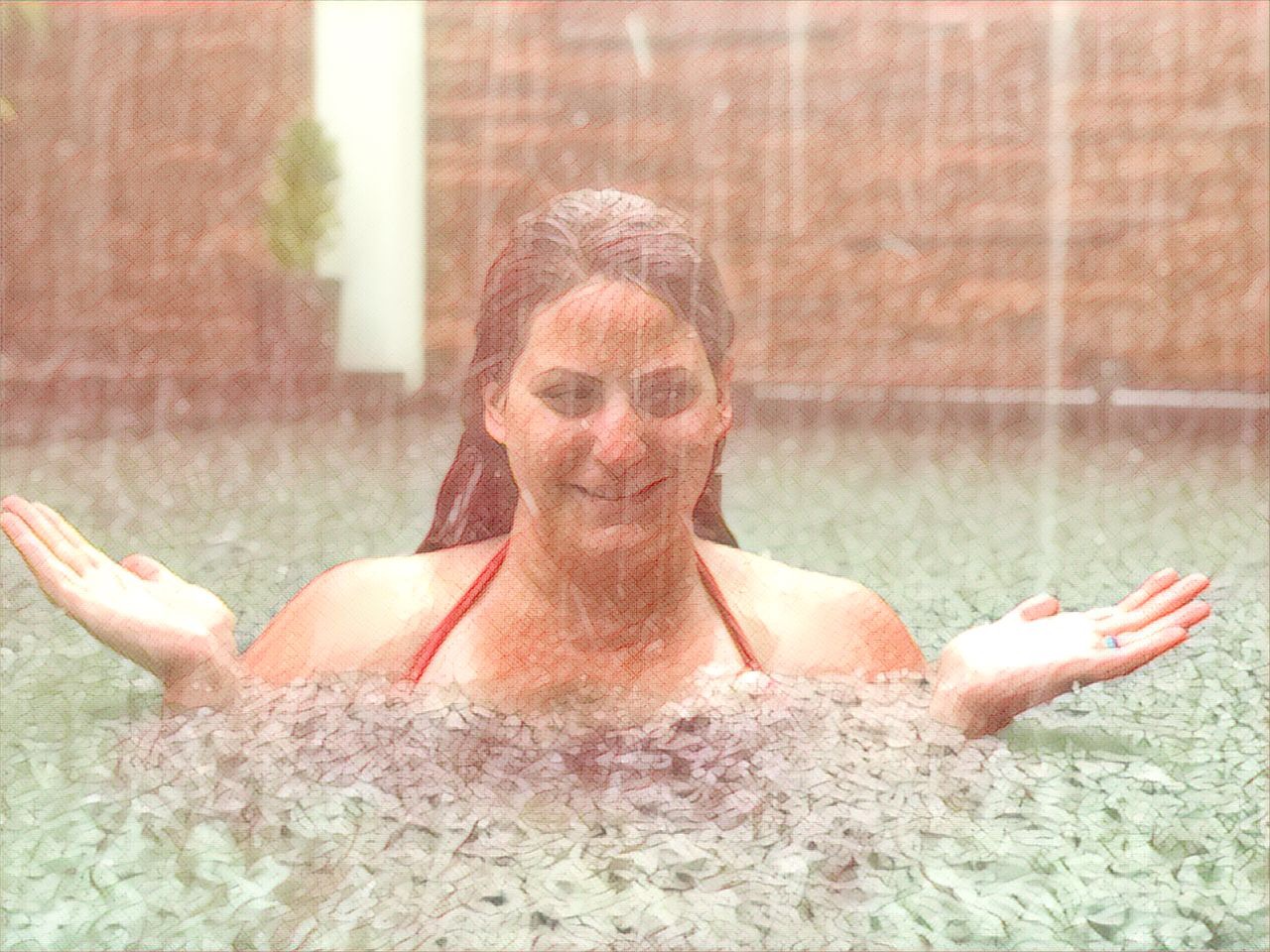
Salvador Dali fancied himself surreal, but then again he probably never visited the islands of Indonesia. The journey would have been too grueling for his pet ocelot Babou. I am not an ocelot, and the journey was nearly too much for me.
For our recent honeymoon, my husband and I traveled a total of 34 hours, 22 of which we spent on airplanes. On our longest flight of 14 hours, we were stuffed into economy seats. For some hours I slept fitfully on my tray table in a melatonin gummy induced haze, curled like pages of a used book.
Time warped just as the Earth curves.
Far from familiar comforts and speeding into the unknown, we had no choice but to simply be. We had no control. But even on the ground, we must simply be. We never have control, not really. We only ever have the illusion of it.
In truth, misfortune may come at anytime.
We landed 9,145 miles from home, halfway across the globe, and in a new world entirely.
Bali and the Nusa islands are so picturesque, my eyeballs nearly spun out of their orbits for a closer look. Turquoise ocean waves flow onto soft sand beaches, white as snow. Intricately carved Balinese Hindu Temples, known as “puras,” stand tall among the lush and thriving colors of a tropical rainbow. Waterfalls abound, misty as they are mystical. Balinese culture permeates, its dramatic, dedicated and thoughtful influence ever apparent. The drinks are delicious and cheap, even after a government tax steeper than the island’s active volcanoes.
Turmeric Rice Gin Martini, anyone?
Bali and the Nusa islands are so stunning and magical, I do not have a proper word. Ethereal come to mind, but even it does not quite do justice to the beauty.
And alongside every kind of serene thing there is to see on Bali and the Nusa islands is something blunt, something sad, something tragic.
There is no waste management, only unattended garbage. Plastic, if not burned illegally by locals or sucked through the smiling mouths of gentle manta rays, washes up on otherwise pristine beaches on which emaciated dogs seek shelter from oppressive heat. The roads, suffocated with traffic and exhaust and lacking regulation, are nothing short of dangerous. Infrastructure is low and petty crime is high. The poverty rate is nearly 3 times that in the United States. As a homeless services social worker, I thought I knew what poverty was.
I didn’t.
Bali receives over 3 million visitors yearly, and the tourism industry generates 5.5 billion U.S. dollars, or 78,860,375,000,000 Indonesian Rupiah. The extreme poverty is difficult to fathom.
Of Indonesia’s over 17,000 islands, I only visited four. And yet the quiet, almost unconscious, gratitude of the Balinese people persisted. On Bali and the Nusa islands, gratitude was neither a question nor a suggestion. It was evident in every greeting, interaction and tradition.
As I arrived home and transitioned back to my reality, I was forever changed by what I had seen and experienced those weeks in Southeast Asia. I was reminded, in the gentlest and harshest of ways, that we must hold space for the full spectrum of experience.
There is no joy without suffering. There is no beauty without imperfection.
In Balinese, “Tri Hita Karana” means “three causes to happiness or harmony.” The philosophy encompasses the most important aspects of life in Bali—connection to humans, connection to nature and connection to god or a higher power.
In a complicated modern world, it is nice to remember that the simplest things are often the most profound.
Suksma, Bali.
So happy to know you have found a true love to enjoy your life adventure with.